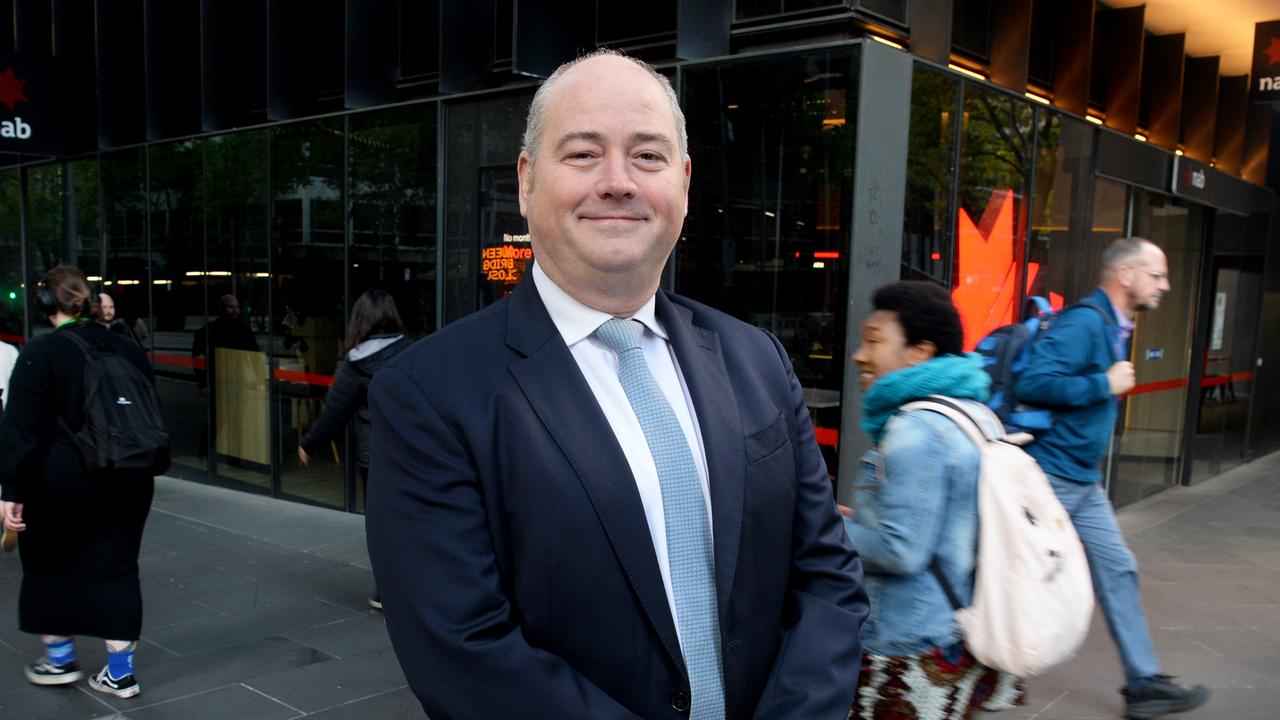Bitcoin, crypto pain has further to run
Cryptocurrencies face the prospect of weeks of pain as margin calls ripple across the sector.

Too rapid a withdrawal of central bank liquidity will eventually break something.
A probable collapse of top-tier crypto exchanges Alameda Research and FTX.com, after Binance withdrew its hastily-arranged merger proposal, has infected the cryptoverse.
The 30-year-old founder of FTX.com and Alameda Research, Sam Bankman-Fried, has told FTX.com investors that without a cash injection the company would need to file for bankruptcy, Bloomberg reported, citing a person with direct knowledge of the matter.
After merger talks with digital asset exchange Binance collapsed, bitcoin dipped to a two-year low near $US15,600.
The world’s most popular cryptocurrency rebounded in Asia after diving 24 per cent in the past two days. While it has fallen as much as 77 per cent from a record high of $US68,990 a year ago, a period that included the collapse of the TerraUSD stablecoin and its sister token Luna in May, cross-asset contagion has been very limited, and certainly nothing to concern the central banks.
But a “cascade of margin calls” is likely underway given the interplay between the exchange, its sister trading house Alameda Research, and the rest of the crypto ecosystem, according to JP Morgan. The US investment bank said cryptocurrencies faced weeks of deleveraging.
“Given the size and interlinkages of both FTX and Alameda Research with other entities of the crypto ecosystem including DeFi platforms it looks likely that a new cascade of margin calls, deleveraging and crypto company/platform failures is starting, similar to what we saw last May/June following the collapse of Terra,” said JP Morgan’s head of global quantitative and derivatives Strategy, Nikolaos Panigirtzoglou.
The $US8bn of Alameda Research liabilities reported in the media was “big enough to create a similar wave of deleveraging to that seen following the $US20bn TerraUSD collapse last May”, he said.
“And similar to what we saw after the collapse of TerraUSD, this deleveraging is likely to last for at least a few weeks unless a rescue for Alameda Research and FTX is agreed quickly.”
Bitcoin rose 5.3 per cent to $US16,700 on Thursday after a four-day decline which included a 16 per cent fall on Wednesday. But could it be near a tipping point that affects other markets?
“What makes this new phase of crypto deleveraging induced by the apparent collapse of Alameda Research and FTX more problematic is that the number of entities with stronger balance sheets able to rescue those with low capital and high leverage is shrinking,” Mr Panigirtzoglou said.
FTX and Alameda emerged in May/June as the main entities with apparently strong balance sheets to rescue weaker and more leveraged entities such as BlockFi, Voyager Digital and Celsius.
With the balance sheet strength of Alameda and FTX in doubt – only a few months after being perceived as having strong balance sheets – it “creates a confidence crisis and reduces the appetite of other crypto companies to come to the rescue”.
Mr Panigirtzoglou said FTX in particular had been preferred over Binance by institutional clients such as hedge funds, so the past days events would likely change the way institutional investors interacted with exchanges to ensure their assets were protected.
FTX investors include veritable names like Blackrock, Ontario Pension Fund, Sequoia, Tiger Global, SoftBank, VanEck and Temasek. The question is whether losses in cryptos could force significant selling of traditional assets to cause a snowballing effect.
A collapse of FTX will increase investor and regulatory pressure on crypto entities to disclose more information about their balance sheets, to safeguard client assets, limit asset concentration risk and improve the management of counterparty risk among crypto market participants.
Still, Mr Panigirtzoglou said it was encouraging that nine exchanges including Binance, Gate.io, KuCoin, Poloniex, Bitget, Huobi, OKX, Deribit and Bybit said they would publish their so-called Merkle tree reserve certificates to increase transparency.
While it might take several weeks until the current deleveraging cycle peaks, he said the hit to crypto market cap was likely to be smaller than that seen after the collapse of Terra because there had been “rather advanced deleveraging” on a scale similar to the start of the Covid pandemic.
The deleveraging phase after the collapse of Terra caused a 50 per cent fall in crypto market cap, from $US1.7 trillion in early May to $US860bn by mid-June. A similar size fall in the current deleveraging phase would take it from about $US1 trillion to $US500bn, according to his estimates.
Mr Panigirtzoglou was also looking at the bitcoin production cost – currently around $US15,000 per coin – as a potential “floor”.




To join the conversation, please log in. Don't have an account? Register
Join the conversation, you are commenting as Logout